The limitations and merits of the World War II / climate change analogy
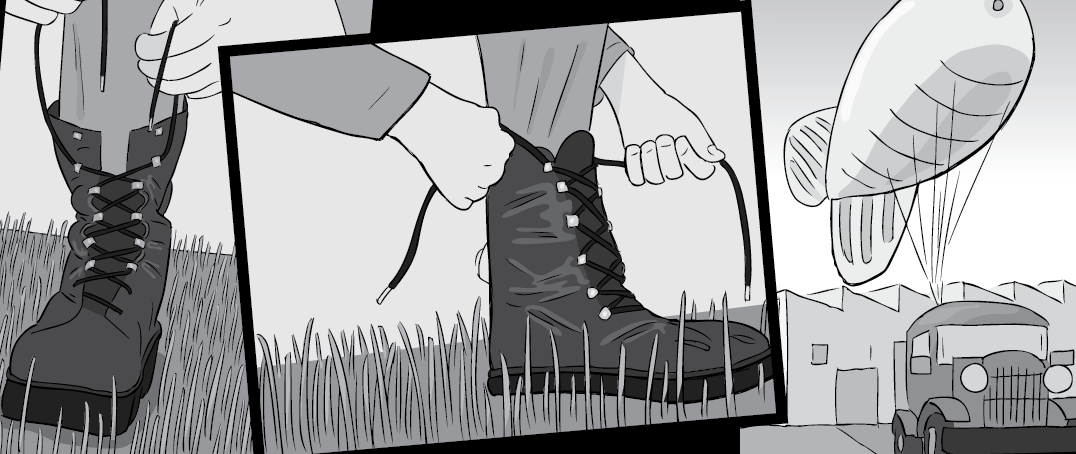
This is the second of a two essays describing my thoughts on climate change, and my motivations behind Hitler Denial. Read the other article: The making of Hitler Denial: bypassing Climate Change 101 .
I am aware of the limitations of the World War II analogy that I used in Hitler Denial.
Since this is the internet, and trolls love accusing writers of ignorance, I decided to preemptively list the limitations and merits of the World War II / climate change comparison that I used in Hitler Denial.
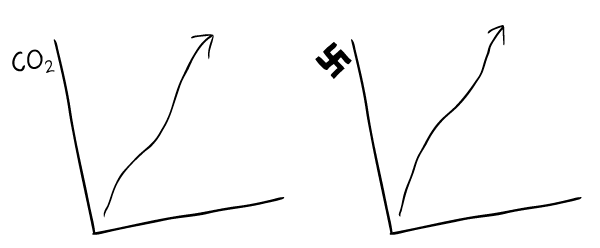
Here are some of them:
Analogy limitation 1) I don’t want to glorify war, trivialise the casualties of World War II, or suggest that we should start a military war to combat climate change.
Hopefully, this was obvious from the comic itself. But the internet is known for wildly misinterpreting the intentions of writers.
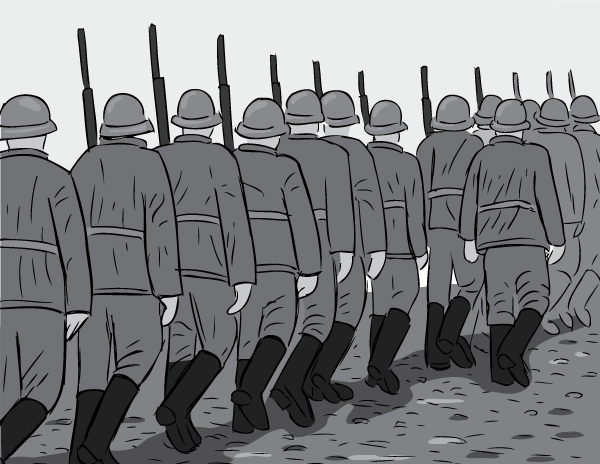
I chose to highlight the social factors that surrounded World War II, rather than the warfare itself. Britain’s sudden decision to act on Hitler, and the social efforts that helped Britain succeed.
I deplore violence. Thankfully we will not need to resort to bombs and violence to fight the “war” on climate change. That is something we can do with economics, technology, ecology and related non-violent fields. The whole world can “fight” on the same side, in the mission to curtail CO2 emissions.
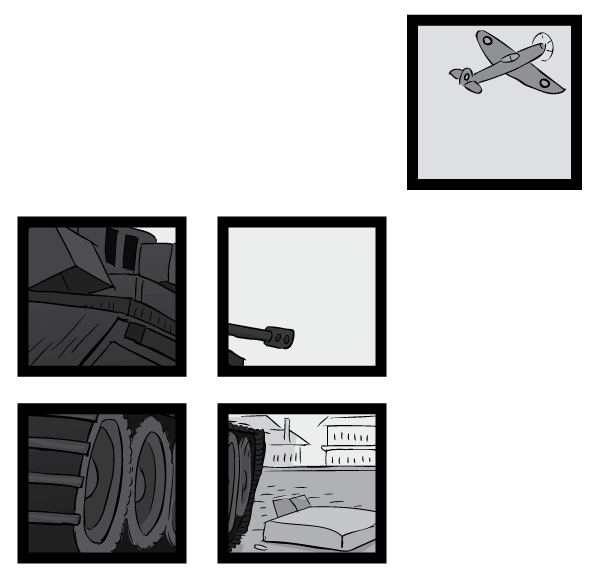
Also, you will be interested to know that Hitler Denial is translated into German. This was done by a volunteer translator who lives in Germany.
Modern Germans are embarrassed by the actions of Adolf Hitler’s Nazi Party, and the way that their country descended into madness during the 1930s and 40s.
Indeed, modern Germans conceive Nazi Germany as a separate country to their Federal Republic of Germany, which was formed in 1949 and reunified in 1990. If they watch a film that is set in World War II, they are psychologically on the side of the Allies, hoping that Hitler’s Holocaust can be stopped.
I apologise to modern Germans about the unavoidable fact that their nation is painted as an enemy to be defeated in Hitler Denial. However, I have taken efforts to continuously specify that Hitler’s Nazi Germany was the enemy, rather than today’s Germans.

Analogy limitation 2) Hitler was a clear and personified threat.
An actual human being, with a moustache and an army, who was agitating for war and conquest.
By comparison, climate change is a faceless threat. It affects our lives through a slow and steady increase of average global temperatures, and by influencing weather patterns.
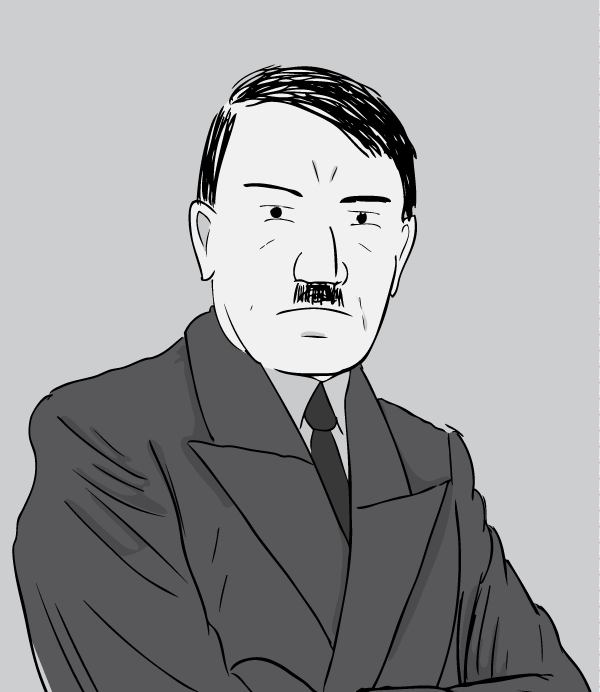
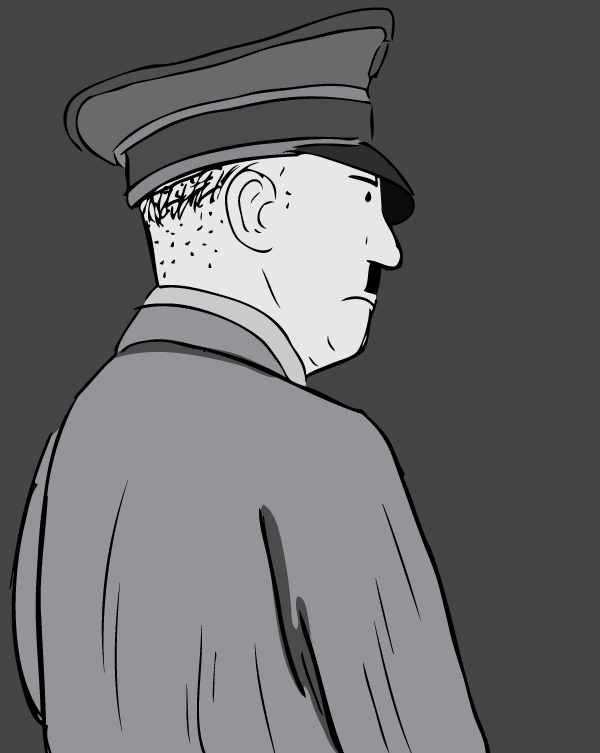
Because of this, it might be harder for us to see “it” as a threat to rail against, as strongly as we responded to the villainous Hitler. The flashpoints of climate change will be less personified than Hitler’s troops marching through the streets of Poland in September 1939.
We will need our X-ray Specs to correlate droughts, floods and cyclones with human-emitted CO2.

Analogy limitation 3) With climate change we are all part of the problem, particularly rich Westerners.
It was easy for the members of the Allied nations to deplore Hitler’s invasions of sovereign nations, or his Holocaust death camps. There was a clear ‘us’ and ‘them’ to blame. But with climate change, we are all partly to blame.
Though we now argue about the road ahead, and the current boom of countries like China and India, we must acknowledge that Western countries have had a long head-start on burning fossil fuels.
We are already more than ¾ of the way towards 2ºC of global warming. Most of the carbon atoms in the atmosphere that originate from fossil fuels, were burned by Western countries. Us, and our ancestors are a huge part of the problem.
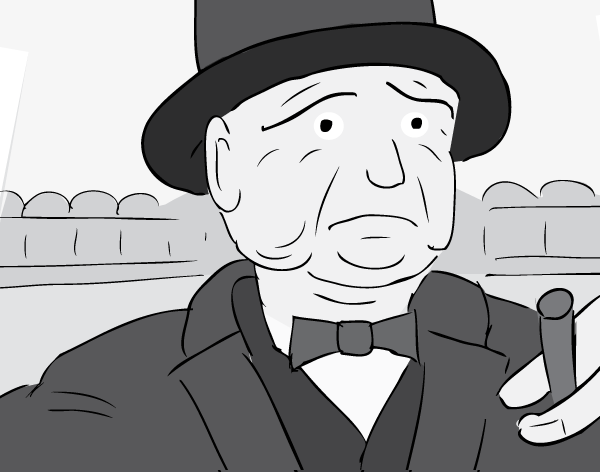
Rich Westerners, like me, have to look ourselves in the mirror. We have to see that our high standard of life is largely due to all of the fossil fuels that have been burnt on our behalf during the decades and centuries that have led to this moment. Our wealth is historically-embedded carbon.
The problem is personified in us, and the solutions must be implemented through us.
Analogy limitation 4) Even though Britain ultimately “won” World War II, the casualties were massive.
Hitler’s Holocaust killed 11 million innocent people. The total casualties of World War II, across all civilians and military service personnel was approximately 60 million.
In this sense, Britain was too late to truly “stop” Hitler.
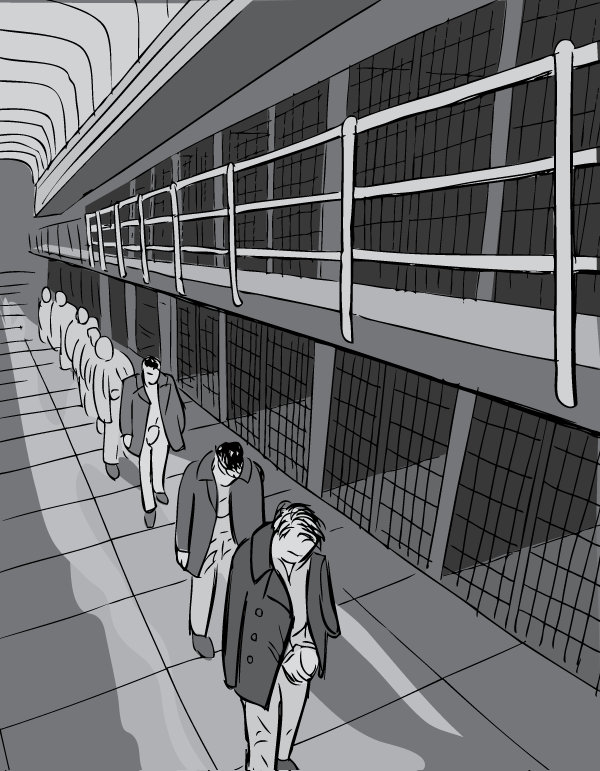
I glossed-over this fact in my comic. I focused on the country that was left standing at the end of the war as the “winner”, Britain. But Hitler did manage to succeed with many of his brutal plans during his 12 years in power.
In a way, we will face a similar fate with climate change. Earth’s surface temperatures have already risen by 0.9ºC since the Industrial Revolution in the late 1700s. And the climate models suggest that a further 0.5ºC is unavoidably “locked-in” because of our historical CO2 emissions to date.
Even if we stop emitting CO2 today, we can still expect temperatures to peak at least 1.4ºC warmer than the global averages before the Industrial Revolution.
Like Churchill’s quest during World War II, we may ultimately “win” our battle to halt human industrial CO2 emissions. But it will not be a clear-cut, bloodless victory. We will suffer casualties along the way, due to the warmer and wilder global weather. Like Churchill, our goal will be to stop the emissions as quickly as possible, while acknowledging that we are set to face unavoidable rises in temperature.
The merits of the World War II analogy
Despite the flaws listed above, I still feel that the analogy is apt for several major reasons:
Analogy merit 1) The British population entered World War II with reluctance. Today, we are reluctant to cut CO2 emissions.
War was both an unpopular and unfathomable idea for the majority of Britons before 1939. Europe had recently gone through the experience of World War I (1914-18), and was not seeking to re-enter another war. Most people wanted to simply get on with their lives.
This seems to be the attitude of many people today, regarding global warming. Many people find reasons to brush aside the need to act to cut CO2 emissions. These people would prefer to live their lives without ‘doomsayers’ appearing on their TV news arguing that we should transform the our industrial economy. Status quo is comfortable.

Analogy merit 2) The dominant strategy of the 1930s was appeasing Hitler. The dominant strategy of our present age is ‘appeasing’ climate change. Outsiders, who suggested the contrary approach were barred from positions of influence and power.
Agitators like Winston Churchill, who warned of Hitler’s growing threat, were a minority voice. Indeed, Churchill himself, was a backbencher (i.e. excluded from the central decision-making team of Prime Minister Neville Chamberlain’s Cabinet) until immediately after Chamberlain declared war in September 1939.
As an Australian citizen, that has been my observation of public life in Australia during our recent history. Particularly in the years following the elevation of Tony Abbott to the leadership of Australia’s conservative party in 2009. Abbott staked his political career on undermining efforts to act on climate change, and he was elected Australian Prime Minister in 2013. Following this election, knowledgeable advisers on science were fired or silenced, and our government’s policy became explicitly geared towards appeasing the energy and mining industries.
In other words, I see direct parallels with the current posture of the Australian government regarding climate change. Like Churchill’s warnings of Hitler, knowledgeable scientists are deliberately excluded from the decision-making process.
I hope that once the dam bursts, these knowledgeable scientists and experts will be brought back into the fold like Winston Churchill was in 1939.
Analogy merit 3) Both Nazi Germany and climate change were clear and growing threats for years before action. On both occasions, we chose not to act upon this information until much later.
There was ample evidence of the danger posed by Adolf Hitler and Nazi Germany far, far before France and Britain declared war in September 1939. Yet, despite evidence of Hitler imprisoning and killing his enemies, re-militarising his armed forces, and annexing Austria and Czechoslovakia, the world chose to appease him.
This is our situation regarding global warming. The weight of scientific evidence has supported the ‘CO2 causes global warming’ hypothesis for decades. But we have done little to cap and shrink emissions on a meaningful scale.
Analogy merit 4) Both problems require redirecting the purpose and direction of the industrial economy’s effort. This requires extensive social transformation.
War required the technologically-advanced Britain to radically change its national industrial focus. Car factories suddenly started building planes. Clothing factories suddenly started making uniforms. New national priorities were set, and the population got to work doing the new jobs that needed doing.
At the moment our industrial economy has no constraints that limit the CO2 that humanity can emit into the atmosphere. Endlessly growing the economy is seen as an end in itself.
I propose that humanity re-purposes our economy so that instead of an end in itself, it becomes a means to an end. By constraining our economy based on evidence-based science, for example by setting CO2 emission targets, we can use it as a tool for positive change.
Think of it like pressing your thumb over the end of a running garden hose. The same volume of water passes through the narrowed slit at the end of the hose, but it is channelled in a more useful way. The directed force can be used for meaningful tasks like hosing debris from a path, more so than the same volume of water lazily spilling from an un-nozzled hose.
This is what Britain did during World War II. It directed the effort of its economy, of its society towards a specific end-purpose: defeating Hitler’s Nazi Germany.
Thankfully, on this occasion, we do not need to put our effort into building bombs or shooting rifles at other human beings. We can work together in a collaborative international effort focused on reducing humanity’s CO2 emissions, and rehabilitating Earth’s ecosystems.
Analogy merit 5) I discuss the ‘dam of inaction’ that prevents action to shift status quo. There can be multiple dams, bursting at multiple times, in different countries and regions.
Different countries declared war on Nazi Germany at different times. Britain did so in September 1939, but the United States waited until December 1941 before declaring war on Hitler: 27 full months later.
This foreshadows a possible scenario where some countries decide to radically cut CO2 emissions early, while other countries delay their efforts.

Despite this, I am calling for a strong and equitable global agreement to be reached at the Paris 2015 climate summit. This agreement must be updated and extended into the future, in line with future scientific knowledge.
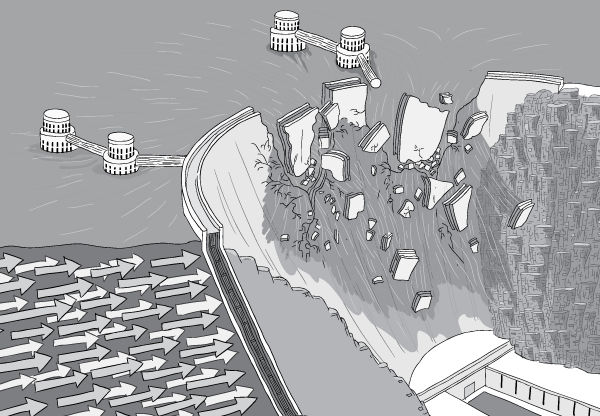
Analogy merit 6) The British population were supportive of the war effort, after Britain entered the war. I predict that most people will also support ongoing CO2-reduction measures, once we begin an equitable global plan.
Though entering war against Nazi Germany was an unpopular idea in the lead-up to World War II, the war effort was supported by the public opinion once war was underway between 1939 and 1945.
The war effort was popular amongst the general population of Britain during World War II. Defeating Adolf Hitler and stopping the spread of Nazi Germany was seen as a just cause.
I hope this offers some reassurance for those who are currently agitating for action to stop global warming.
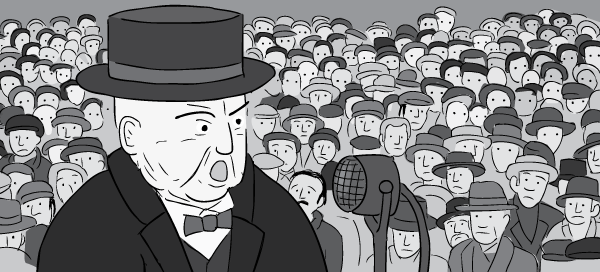
Climate campaigners currently battle the indifference of public opinion. Yet many of the necessary policies that we will enact to cut CO2 emissions (such as rainforest preservation, replacing fossil fuels with renewable energy, and retrofitting buildings for energy-efficiency) are inherently popular and sensible.
Once we begin our effort to slash CO2 emissions, I hope and expect that public sentiment will support our action.
Analogy merit 7) The British government fostered national solidarity by narrowing the gap between rich and poor. That approach will be a necessary feature of combating climate change.
Britain won World War II largely because of the high public morale that it fostered during the war effort.
The Ministry for Food ensured that all Brits had an adequate diet throughout the war. This meant that the consumption habits of the top strata of society had to be clipped. During the war, the Royal Family was noted for eating the unappealing brown bread National Loaf, like everyone else in the country.
Although wealthy people needed to forgo luxuries that they had become accustomed to, rationing was a boon for low income people. The Ministry of Food’s rationing provided poor people with more food than they could previously afforded. This was a deliberate strategy to ensure that the entire nation of Britain was involved in the social effort needed to win World War II. Britain could not afford to have malnourished citizens who were unable to fully participate in the war effort.
There was also a national “Dig for Victory” campaign, whereby everyday British people began farming vegetables on unused lots of land throughout the country. This dramatically improved Britain’s self-sufficiency to feed itself, halving its need for foreign food imports.
As was the case in wartime Britain, sumptuary regulation will be an important feature of our response to climate change: flattening the gap between the richest and poorest in society, as well as their relative consumption levels.
Sumptuary regulation is not a new idea. All societies, throughout history, have viewed some desires as excessive or luxurious, and therefore illegitimate.
As George Orwell put it during World War II: “The lady in the Rolls-Royce car is more damaging to morale than a fleet of Göreng’s bombing-planes.”
The current ratio of CEO pay ÷ junior salary within the 21st century United States corporate world is roughly 500:1. It is sensible to flatten this to something like 15:1, which is the typical spread of salaries amongst staff of universities, militaries and government departments. Such a spread allows high-ranking stuff to be rewarded for their efforts, but ensures they are tethered to the experiences of the everyday person.
Flattening the strata of society, and setting sumptuary limits will create the solidarity that Britain fostered during its successful World War II effort.

Analogy merit 8) Britain had to endure tough, demoralising times during World War II. We will also have to endure the climactic challenges caused by global warming.
During World War II, there was a 12 month period spanning 1940-1 that Winston Churchill described as “The Darkest Hour”.
The Darkest Hour was a time when Britain was the only European country fighting the Nazis. Russia and the United States had not yet entered the war. All other European countries were either politically neutral, or had already been conquered by Hitler’s Nazi Germany. Britain was isolated in its fight against Hitler.
The Australian Climate Council’s Tim Flannery states that the decade ahead will be the toughest that we will face. Although the COP21 Paris climate summit will likely yield an international agreement to limit CO2 emissions, this 2015-signed agreement will not come into effect until 2020. We will enter a five-year phase of experiencing increasingly wilder weather caused by global warming, without any binding international laws that are compelling us to act upon the problem. And every ton of CO2 that we emit to the atmosphere after 2020 will further compound our problem.
As mentioned earlier in this essay, IPCC estimates that roughly 1.4ºC of global temperature rises are unavoidably ‘locked-in’, due to the CO2 that we have already emitted. Like Britain’s path during World War II, those are the challenges that we need to endure on our journey to a post-carbon civilisation.
My hope is that we sensibly endure those challenges together, with a Ministry of Food-style oversight that nurtures the collective interest of society, as we deploy cultural and technological responses that reverse humanity’s destructive impact on Earth’s ecosystems.
A call for patrons
Please help me to draw more comics like Hitler Denial by joining my recurring crowdfunding campaign.
If you liked Hitler Denial, I can guarantee that you will appreciate the future comics that I am creating. Particularly the four comics about post-growth, post-fossil fuel economics that I will collect in my upcoming book Thermoeconomics (2017).
I spent approximately 200 hours writing, drawing and publishing Hitler Denial. As well as writing these blog posts, and orchestrating the translation into languages like French and German.
Your patronage will repay me for your reading experience, and keep me drawing thoughtful comics like Hitler Denial into the future.
This is the second of a two essays describing my thoughts on climate change, and my motivations behind Hitler Denial. Read the other article: The making of Hitler Denial: bypassing Climate Change 101 .








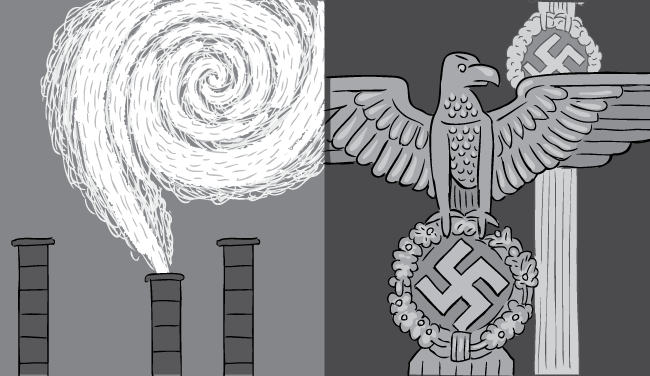
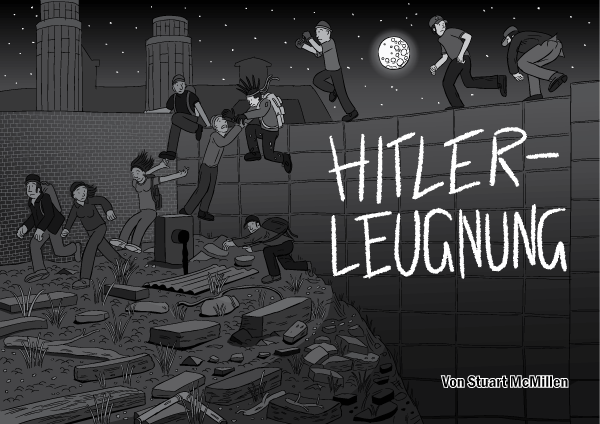
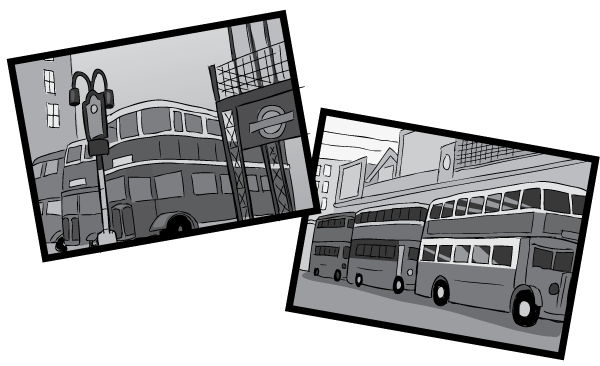


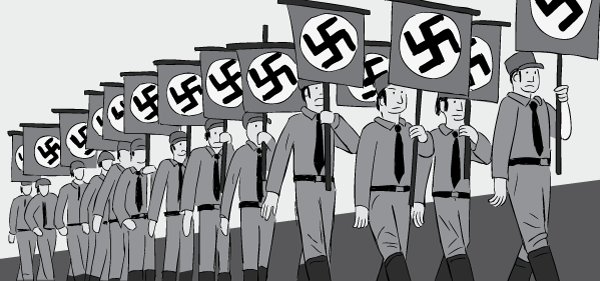
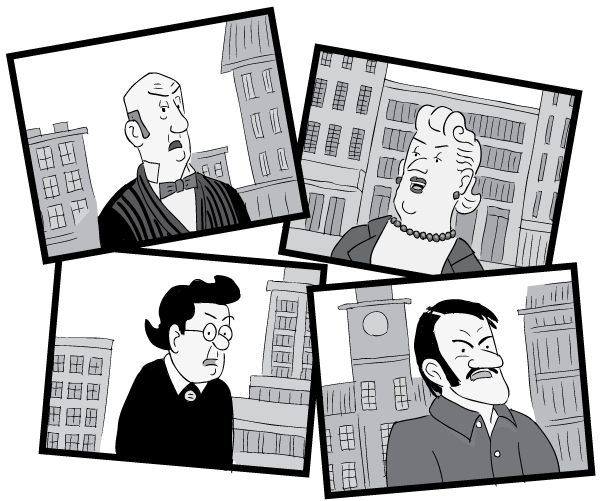
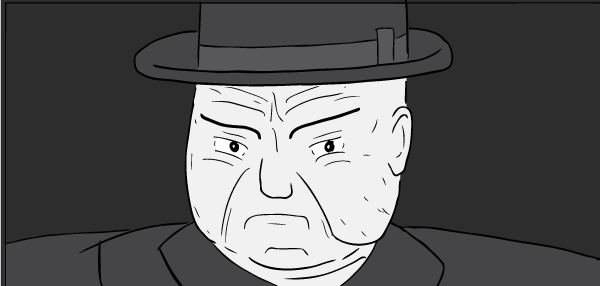
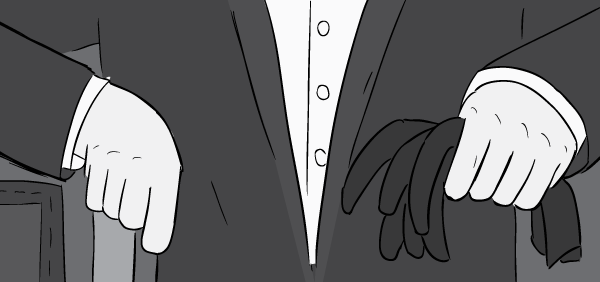
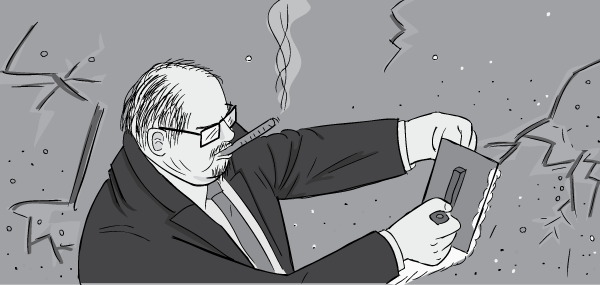
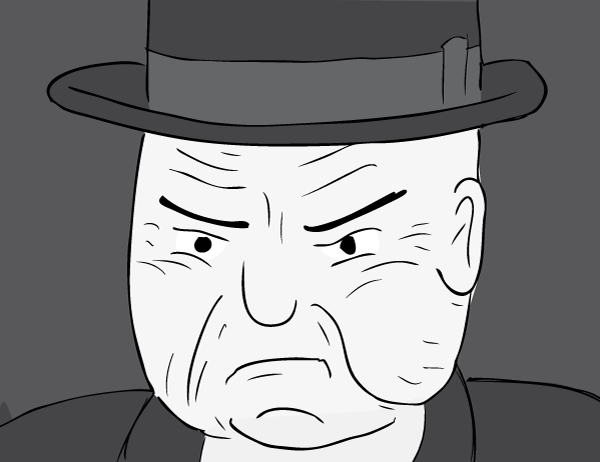
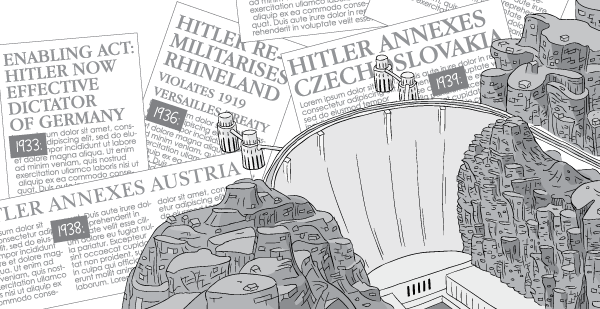
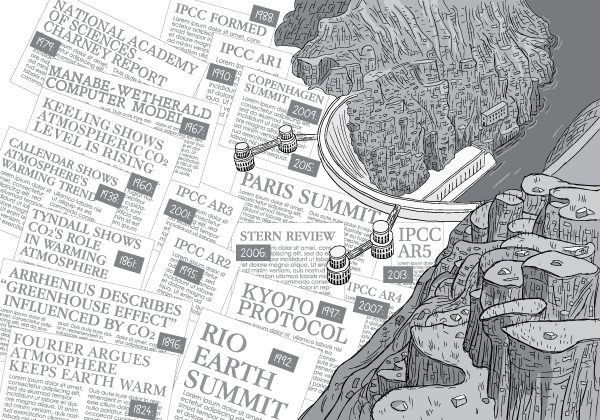
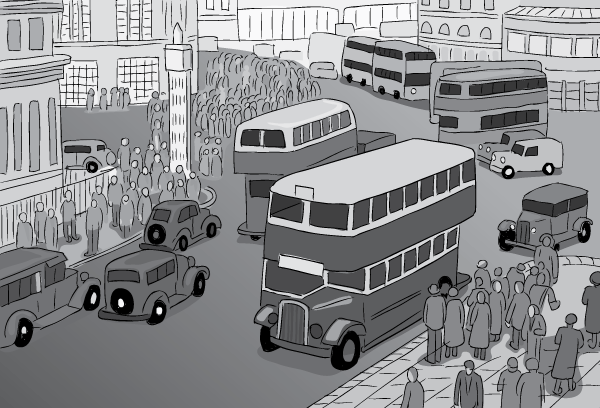
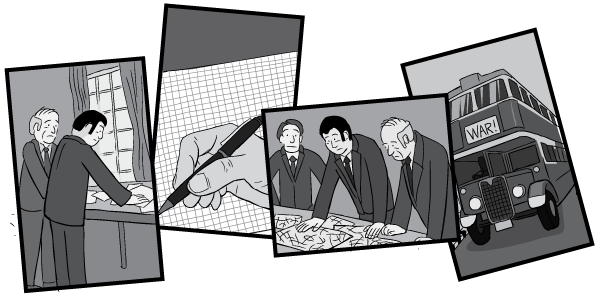
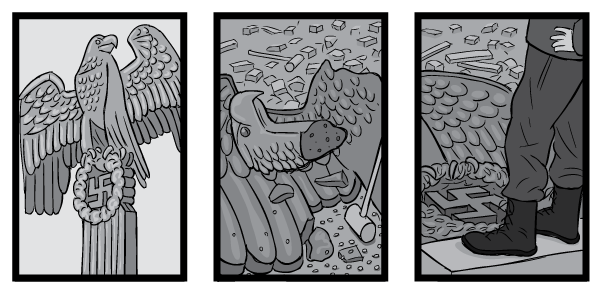
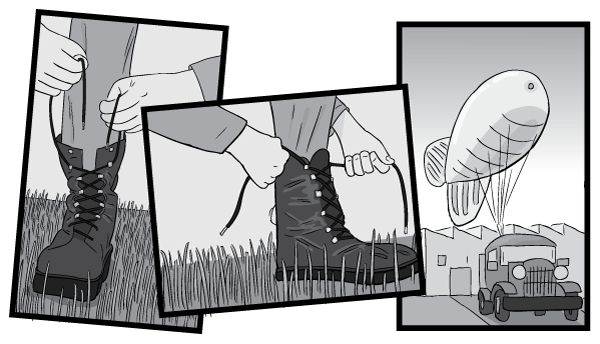
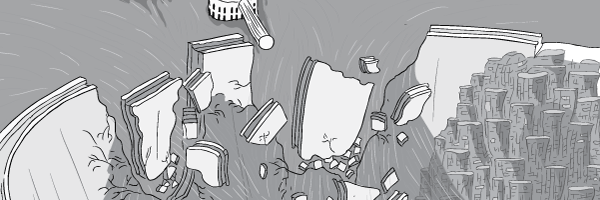
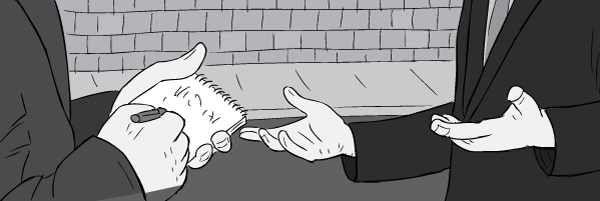

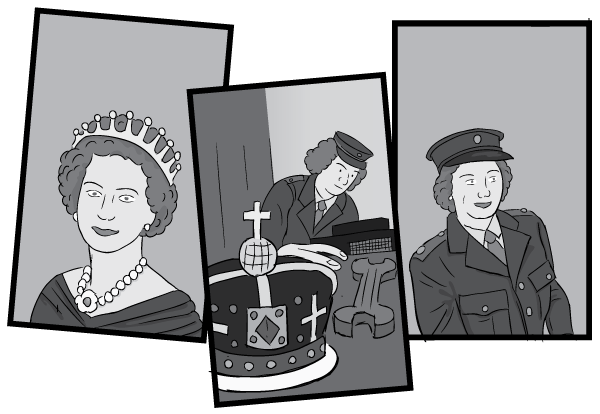
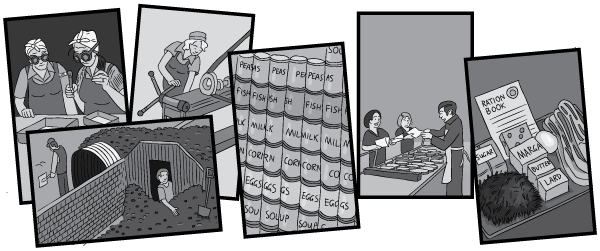
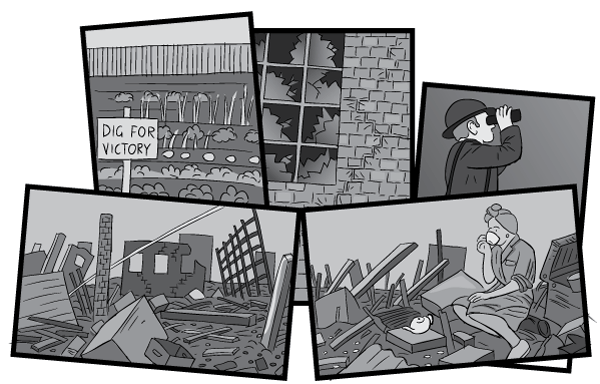
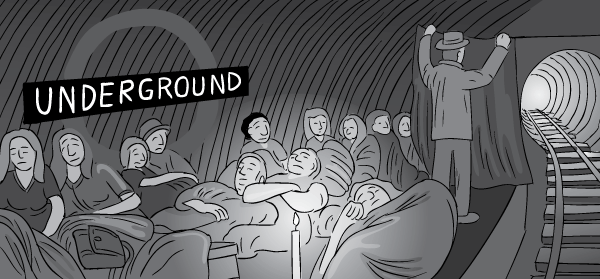


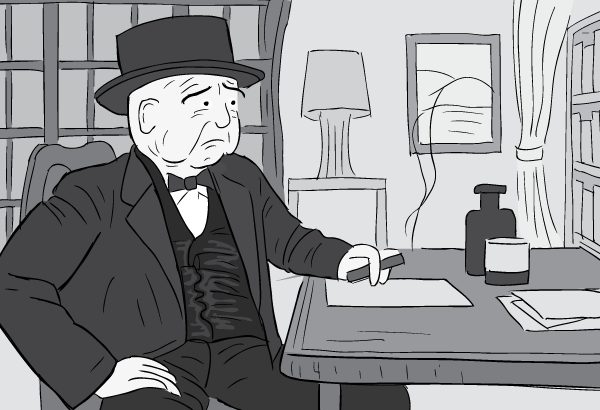
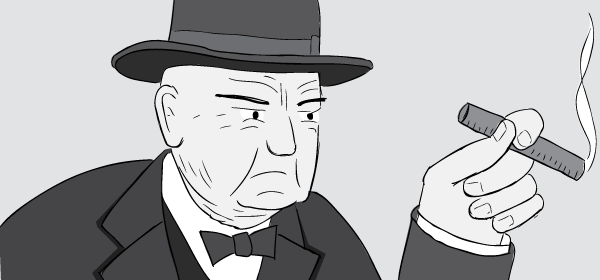
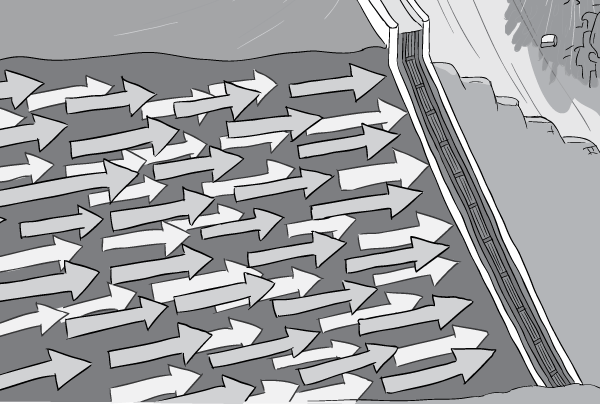
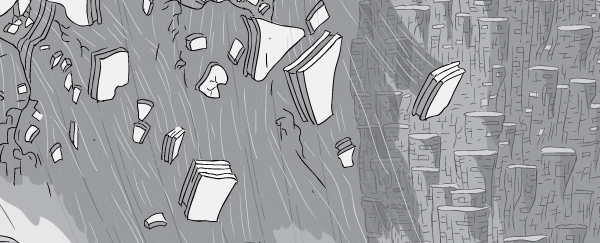




Comments
賓果遊戲
My wife and i have been absolutely happy when Michael managed to round up his studies by way of the ideas he grabbed from your very own web page. It's not at all simplistic to just happen to be giving for free tactics some other people might have been selling. And now we take into account we now have you to give thanks to because of that. Those illustrations you made, the simple blog menu, the friendships you aid to promote - it's got everything spectacular, and it's assisting our son in addition to the family recognize that this concept is thrilling, and that's truly serious. Thanks for all!
The Fifth Estate | Road to Paris: Hitler Denial, a cartoon in 36 pages
[…] in the first of two blog posts on the latest cartoon, McMillen explained why he set the comic in the time of World War […]